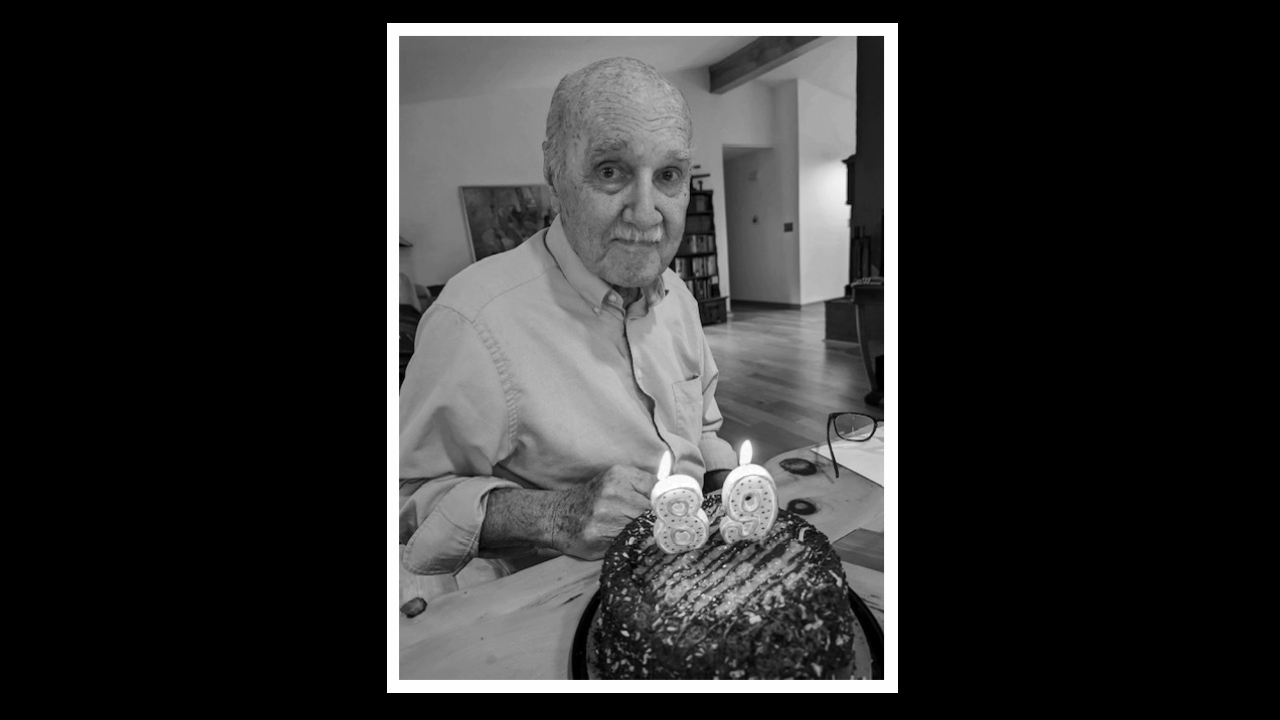While Helen Cooke and her father Herbert Foerstel were eating at their regular Ellicott City diner a few months ago, a waitress gently pulled Cooke aside.
She had noticed Cooke’s father was growing older and wanted to share the impact he had on her life.
Much to Cooke’s surprise, the waitress revealed that Herbert Foerstel had helped pay her mortgage during a financially difficult time, and despite her attempts, never let her repay him.
Cooke, along with her younger sister Karen Foerstel, had not known about their father’s act of kindness. But Karen Foerstel said it made perfect sense.
“He would do these things, and we wouldn’t even know about it,” Karen Foerstel said, recalling the story. “He really helped change people’s lives.”
Herbert Foerstel, who worked for University of Maryland Libraries for nearly 30 years, died of natural causes on Sept. 20 at the Harbor Medical Center in Baltimore. He was 90.
Whether it was helping a waitress pay her mortgage or championing library privacy rights, Herbert Foerstel cared deeply about the people around him, Karen Foerstel recalled.
Herbert Foerstel joined the Army as a radar specialist for three years after he graduated from Hamilton College in 1955, The Baltimore Sun reported. He later earned a master’s degree in library science from Rutgers University.
His first librarian job was at Towson University, where he met his wife Lenore Foerstel, an art professor who lived in his apartment building. They fell in love carpooling to work, Karen Foerstel said.
He began to work at this university, where he was head of the Engineering and Physical Sciences Library, and later head of branch libraries. During his time at this university, Herbert Foerstel discovered his passion for protecting people’s right to freely access information, Karen Foerstel added.
According to Cooke, FBI agents visited libraries at this university seeking book-lending records of anyone with “foreign-sounding names.” The FBI’s surveillance was part of its “library awareness program,” during the Cold War, The Baltimore Sun reported.
Herbert Foerstel did not want to comply with the requests, Karen Foerstel said, and worked with university administrators to enact policies protecting the library records. He also worked with state officials to push for legislation that would guarantee the privacy of all Maryland library records.
State lawmakers passed the legislation in 1988, The Baltimore Sun reported.
Herbert Foerstel later testified before Congress about the government’s library awareness program. His experiences inspired him to write his first book, “Surveillance in the Stacks: The FBI’s Library Awareness Program,” which was published in 1991.
His work against government overreach in libraries across the U.S. earned him a Hugh Hefner First Amendment Award in 1988.
“He felt very proud, not so much for winning the award, but proud of what he was able to accomplish through legislation and through protecting people’s rights,” Karen Foerstel said.
Herbert Foerstel retired from this university in 1996. He published 10 more books covering First Amendment-related issues and also served as a board member for the National Security Archive at George Washington University and the Freedom to Read Foundation, according to The Baltimore Sun.
Tom Blanton, the National Security Archive’s director, said Herbert Foerstel always looked for new projects to take on.
“He was this incredibly energetic, incredibly dedicated human being who came out of the library profession as an activist, intellectual freedom, writer, scholar and advocate,” Blanton said.
Though he had a prolific career, Herbert Foerstel was most proud of his family, Karen Foerstel said.
Growing up, Karen Foerstel remembered him reading her and her siblings bedtime stories, helping with homework and championing her professionally when she became a reporter.
Cooke echoed her sister’s sentiments and said Herbert Foerstel was a very “hands-on father.” With her own two children, he was the “fun grandpa” who took his grandkids to the beach and built snowmen with them, Cooke added.
Herbert Foerstel was dedicated to his wife Lenore, who died in 2018, Cooke said. During the last year of her life, Lenore was in a facility as she grew sicker, Cooke added.
“Every day he would go and sit by her side,” Cooke said. “Rain, snow, whatever, he was there every single day until she passed.”
Despite his personal and professional accomplishments, Herbert Foerstel was never boastful, Karen Foerstel said. He left a profound impact on the people around him, serving as a reminder that you don’t have to be the loudest in the room to enact change, she added.
Along with Karen Foerstel and Cooke, Herbert Foerstel is survived by his son Jonathan, his sisters, his three grandchildren and four great-grandchildren.



